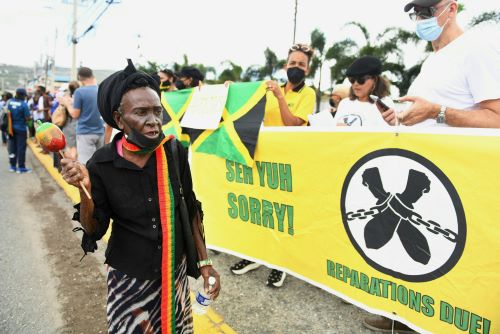
THE THREE candidates hoping to become the next Secretary-General of the Commonwealth have all affirmed their support for reparations for slavery.
The candidates are vying to become the next secretary-general of the Commonwealth – an organisation made up of 56 countries headed by King Charles III.
The candidates – Mamadou Tangara of Gambia, Shirley Botchwey from Ghana and Joshua Setipa of Lesotho have all said they support reparations for the Transatlantic slave trade according to a report by Reuters.
“I stand for reparations,” Botchwey, Ghana’s foreign affairs minister, said, adding the Commonwealth could have a role to play in this if the organisation’s member states request a “common voice” on the issue.
Setipa, a former trade and industry minister in Lesotho, said if he was elected he would not wait for member states to ask the Commonwealth to act, the news agency reported.
“The Commonwealth has a long history of facilitating discussions about difficult issues,” he said.
Legacy of slavery
Tangara, a Gambian diplomat and politician, said he “fully” supported reparations but it was up to member states to lead the conversations, which the Commonwealth could facilitate.
Both Botchwey and Setipa said any reparations should not just be about financial payments but include efforts to tackle the climate change crisis facing a number of countries in Africa and the Caribbean and help to build the climate resilience of these countries.
Setipa noted these issues were crucial to addressing the legacy of centuries of slavery and colonialism in some countries around the world.
In April this year, Portugal rejected a proposal to pay reparations for its role in the Transatlantic slave trade.
Between the 15th and 19th centuries, over six million Africans were forced into slavery and transported across the Atlantic by Portuguese ships to work on plantations mainly in Brazil.
Last year, the President of Portugal, Macelo Rebelo de Sousa, said his country should apologise for its role in slavery and went further to say the country needs to do more.
Brazil gained independence from Portugal in 1822.
Other European countries have made some apologies for slavery. In December 2022, Dutch Prime Minister Mark Rutte apologised on behalf of his government for the Netherlands’ role in slavery and the slave trade.

